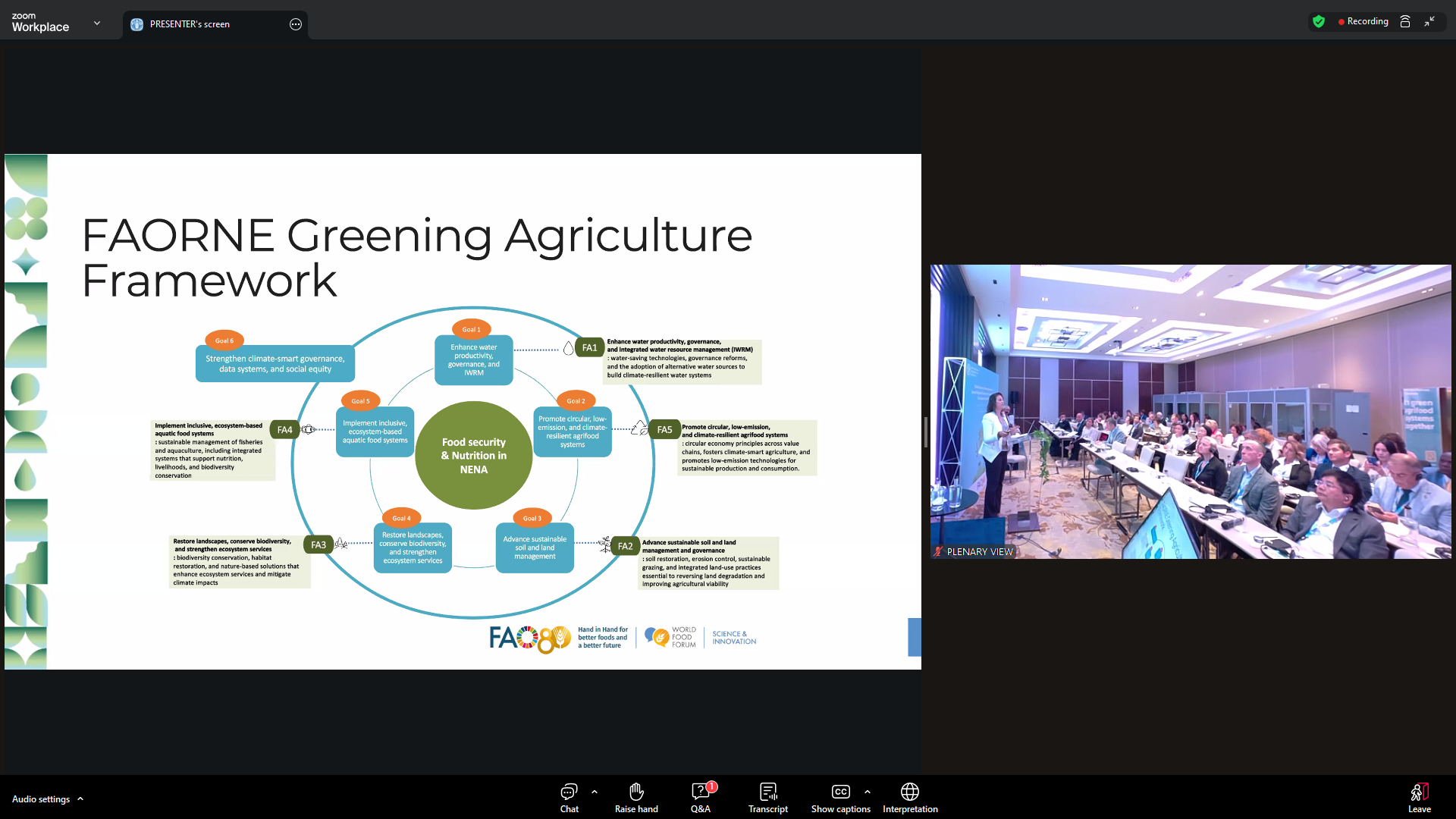FAO highlights policies and strategies for greening agrifood systems in the Near East and North Africa region

©FAO
As part of the Global Forum on Green Agriculture and the second Regional Science and Innovation Week for Europe and Central Asia, the Food and Agriculture Organization of the United Nations (FAO) Regional Office for the Near East and North Africa (NENA) has convened a special session on the ninth of September 2025 to explore practical pathways for advancing greener, more resilient agrifood systems in the region.
The NENA region faces severe environmental, climatic, and socio-economic pressures that strain agriculture and threaten food security. Over 90 percent of the land is arid or semi-arid, with less than 5 percent arable and heavily degraded, while water scarcity affects over 60 percent of the population. Rapid population growth, urbanization, and persistent rural poverty further stress food, land, and water resources, with economic losses from land degradation reaching billions annually. Marine ecosystems are also under threat, with overfishing and pollution reducing fish stocks and coastal livelihoods. Climate change intensifies these challenges, driving higher temperatures, more frequent droughts, and declining crop yields. Green Agriculture offers a pathway forward through climate-smart, nature-based approaches that enhance productivity, resilience, and social inclusion, though governance, policy, finance, and land tenure barriers must be addressed.
The session presented findings from the Green Agricultural Policy Assessment that highlight the importance of moving beyond indicators to unpack the policy and institutional gaps shaping the region’s greening agenda. The discussion was drawn on country case studies that illustrated how different approaches were being put into practice. Jordan showcased innovative solutions to address severe water scarcity, including water-efficient agriculture through drip irrigation, wastewater reuse, and smart irrigation systems that reduced water footprints while sustaining production. Tunisia highlighted its efforts to strengthen soil monitoring systems to guide land restoration and design policies that promoted climate-resilient and sustainable land use. Egypt demonstrated how circular economy principles were being applied to address food loss and waste, turning waste streams into resources for agricultural production and energy, while building policy frameworks that encouraged greener and more efficient food systems.
The session concluded with reflections from country representatives on the concrete steps required to advance the greening of agriculture in the region. These included scaling up evidence-based policies, deepening regional collaboration on soil and water systems, and promoting circular approaches that align with global commitments By surfacing these lessons, the NENA region contributed actionable insights to the global dialogue on green agriculture, reinforcing the urgency of integrated approaches to safeguard food, water, livelihoods, and ecosystems in the face of mounting climate and environmental pressures.
These discussions directly advanced Regional Priority 3 (RP3): Greening agriculture, water scarcity, and climate action, which envisions a region that secures food and nutrition while restoring and sustainably managing ecosystems. RP3 focuses on water productivity, circular agrifood systems, soil health, biodiversity restoration, inclusive aquatic food systems, and climate-smart governance. Country examples showcased how these goals are being realized, from Jordan’s water efficiency measures to Tunisia’s soil monitoring systems and Egypt’s circular food approaches.
By aligning with RP3, the session underscored how integrated, climate-smart policies and inclusive governance can transform agrifood systems in the Near East and North Africa. These pathways not only safeguard food and water but also build resilience and equity across communities.
